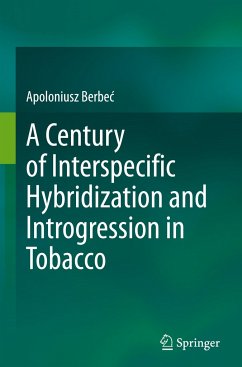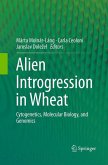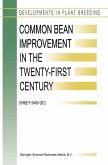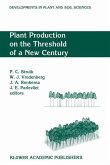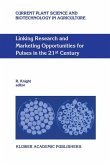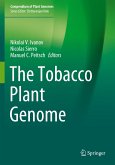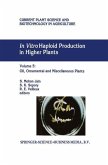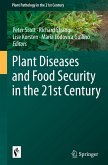This is the first comprehensive monograph dedicated to using Nicotiana species for tobacco genetic improvement. Unlike typical chapters constrained by size and scope, this book offers a detailed species-by-species analysis, with 27 tables providing relevant information. It marks a shift from focusing on specific topics to giving due attention to individual species. The review reflects on a century of exploiting Nicotiana species for usable germplasm and serves as an exhaustive guide to global literature on the subject, citing nearly 1000 literature items.
The review delves into the involvement of Nicotiana species in interspecific hybrids with cultivated tobacco, covering sexual and asexual methods, including grafting. It addresses challenges in hybridization, such as cross incompatibility, maternal phenotypes, interspecific incongruity, lethality, and sterility, providing methods to overcome these barriers. Records on disease resistance for each Nicotianae species arecompiled, and mechanisms of introgression, barriers, and limitations are discussed. The book lists Nicotiana species as successful donors of cytoplasmic genetic factors leading to cytoplasmic male sterility (CMS) and discusses negative effects of alien cytoplasm, providing a list of agronomically acceptable CMS sources. Controversial issues, including the identity of genetic accessions, are explored. The book concludes with an updated list of all reported interspecific combinations for Nicotiana.
Primarily aimed at scholars and students interested in the genus for genetic diversity, this book serves as a historical reference guide to the realized and potential uses of Nicotiana species in tobacco improvement.
The review delves into the involvement of Nicotiana species in interspecific hybrids with cultivated tobacco, covering sexual and asexual methods, including grafting. It addresses challenges in hybridization, such as cross incompatibility, maternal phenotypes, interspecific incongruity, lethality, and sterility, providing methods to overcome these barriers. Records on disease resistance for each Nicotianae species arecompiled, and mechanisms of introgression, barriers, and limitations are discussed. The book lists Nicotiana species as successful donors of cytoplasmic genetic factors leading to cytoplasmic male sterility (CMS) and discusses negative effects of alien cytoplasm, providing a list of agronomically acceptable CMS sources. Controversial issues, including the identity of genetic accessions, are explored. The book concludes with an updated list of all reported interspecific combinations for Nicotiana.
Primarily aimed at scholars and students interested in the genus for genetic diversity, this book serves as a historical reference guide to the realized and potential uses of Nicotiana species in tobacco improvement.

